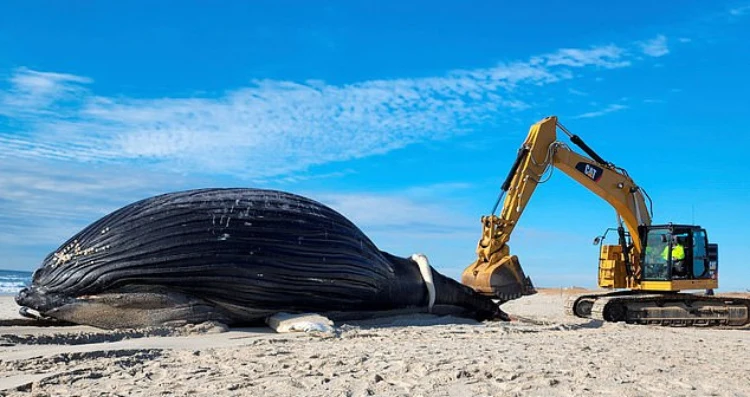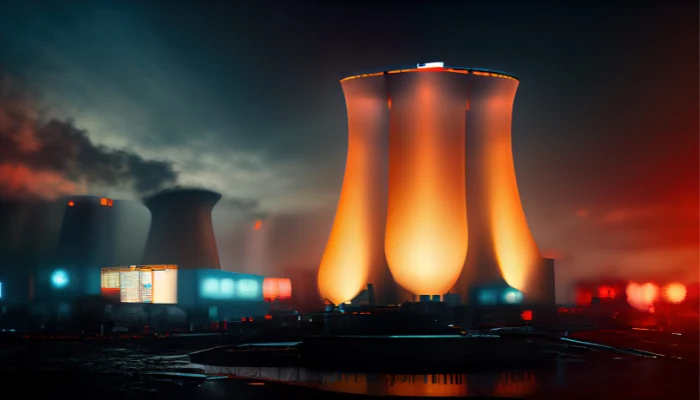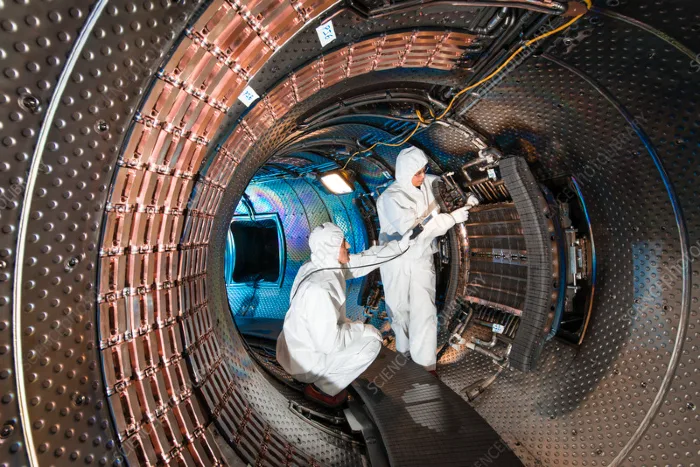Facebook is once again under scrutiny, this time for allegedly censoring posts discussing a potential connection between the rise in whale deaths along the east coast and offshore wind farms.
Since 2017, there have been reports of nearly 300 whales stranded from Maine to Florida. Environmental advocate, Michael Shellenberger, suggests that Facebook is suppressing pertinent information. His claim was fueled by a content warning Facebook placed on one of his posts discussing the 300 stranded whales.
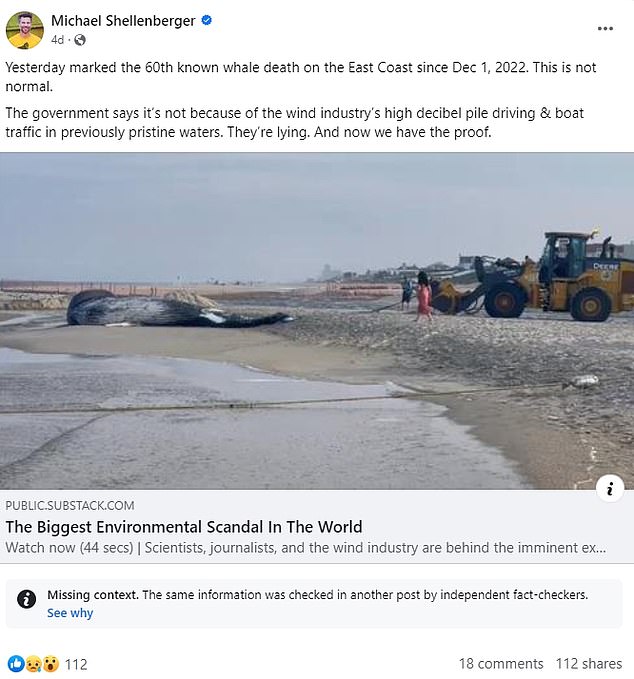
Authorities acknowledge an unusual spike in marine strandings from New York to North Carolina over the past six years. However, they firmly state that the recent establishment of wind farms isn’t the cause.
This issue garnered more attention shortly after claims arose that Facebook, under CEO Mark Zuckerberg’s leadership, was deleting certain posts based on directives from the Biden administration.
Shellenberger commented, “Facebook is censoring accurate information about the connection between the escalation of whale deaths off the East Coast and industrial wind energy projects.”
The U.S. administration’s commitment to green energy is evident with new wind farms in development off Rhode Island and Massachusetts. These initiatives align with the White House’s goal to harness 30 gigawatts from offshore wind by 2030, which would be sufficient to energize 10 million households.
Currently, two wind farms are operational off Rhode Island and Virginia Beach. The latter, a \$10 billion development, is projected to house over 175 wind turbines by 2026.
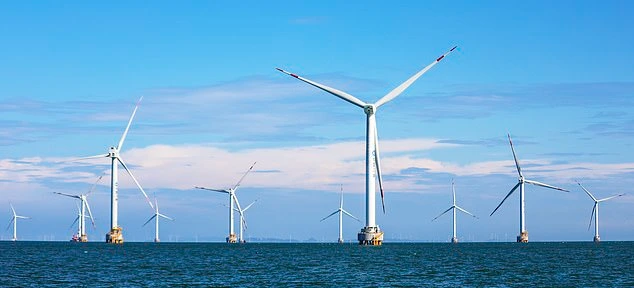
Earlier this year, the Clean Ocean Action environmental organization appealed to President Biden to reconsider the wind farm initiatives. They cited potential evidence linking the projects to the uptick in whale fatalities.
Cindy Zipf, the executive director of Clean Ocean Action, expressed concerns: “We’ve ventured too rapidly. Over 2.2 million acres have been designated for offshore wind, inclusive of 10,000 miles of cables. The disturbing rise in deaths is unparalleled in recent decades. The only distinguishable change is the aggressive expansion of offshore wind projects.”
Adding to the concerns, another whale was recently discovered on Takanassee Beach in New Jersey. Predictions suggest this year might witness the highest number of fatal whale strandings on the East Coast ever recorded.
Shellenberger, in his discussions with his vast Facebook audience, dubbed this situation the “world’s most significant environmental controversy.”
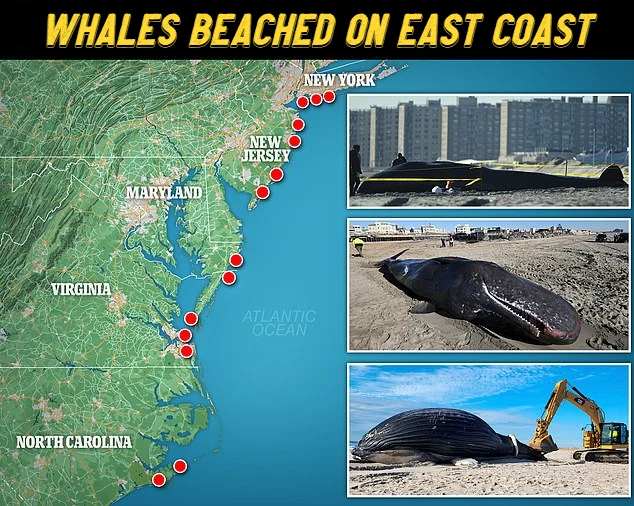
Facebook Under Fire for Flagging Posts About Whale Deaths and Wind Farms
Michael Shellenberger, the environmental advocate, has doubled down on his assertions regarding wind farms and their potential link to the increasing number of whale deaths. He stated, “The government is dismissing the impact of the wind industry’s loud pile driving and increased boat activity in previously untouched waters. They’re not being truthful, and we have evidence.”
This statement drew the attention of Facebook’s monitoring systems, which flagged his post, suggesting that it lacked context and might mislead readers.
To provide a counter-narrative, Facebook then redirected users to an article by its partner, Factcheck.org, which asserted that there’s no conclusive evidence linking wind farms to whale deaths.
Factcheck.org pointed out other potential factors behind the tragic phenomenon. They wrote, “Several reasons could increase these threats. For instance, climate change warms oceans, altering the prey distribution marine species rely on. Consequently, whales change their migration patterns, venturing closer to shores, making them prone to ship collisions and fishing gear entanglements.”
Autopsy reports from the National Oceanic and Atmospheric Administration were highlighted, indicating that 40% of the deceased humpback whales had injuries consistent with collisions with vessels or entanglements in ropes.
However, the cause of death for the remaining 60% remains uncertain. The rapid decomposition of the carcasses poses challenges in determining exact causes.
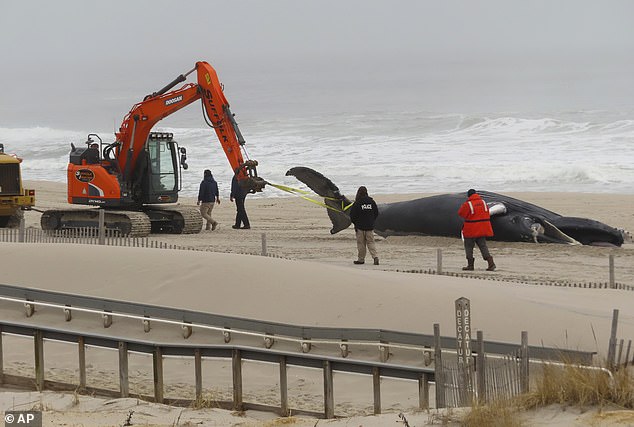
Facebook has a policy of limiting the visibility of posts that its fact-checking partners, such as AFP, flag as misleading.
More To Discover
- New Study Reveals The US Cities Facing Increased Flood Risk from Sinking Land and Sea Level Rise
- Antarctica’s Ice Melt Matters: A Disappearing Act with Global Consequences
- 9 Expert-Recommended Features for Your Eco-Friendly Dream Home
- Pyrolysis: Plastic Recycling Solution or Just High-Tech Incineration?
However, in a recent update, its parent company, Meta, allowed users more leeway to adjust fact-checking settings. A spokesperson from Meta mentioned, “In response to feedback, we’re letting users have greater control over the algorithm that organizes their feed.”
Shellenberger (pictured right), in his response, remarked on the changing dynamics of content moderation on platforms like Facebook. He mentioned, “For two decades, Mark Zuckerberg has presented Facebook as a digital town square, championing factual precision and environmental protection. It’s evident that Facebook’s so-called ‘fact checks’ are more of their perspective. Labeling FactCheck.org, which in this instance echoes U.S. government narratives, as a ‘fact-checker’ is, in itself, spreading misinformation.”







